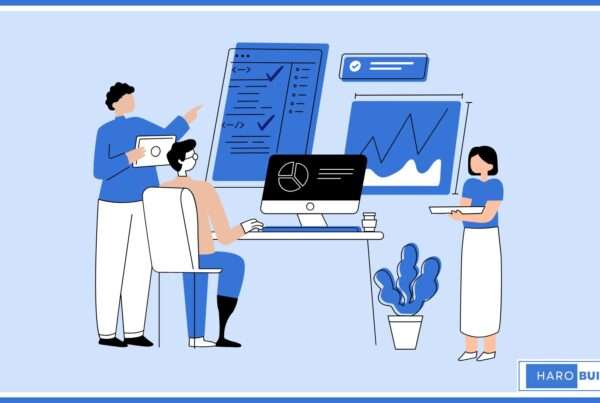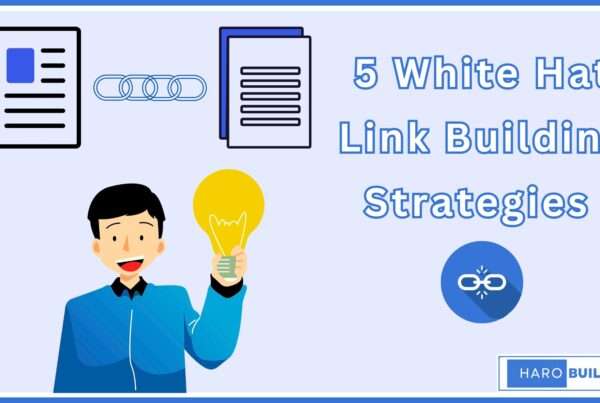
Many ecommerce websites still fail to rank because they underestimate the value of effective link building. Without a link pointing to your ecommerce site from credible sources, your pages remain buried in search results. Backlinks from other websites remain a top-ranking factor for ecommerce SEO in 2025. Some link building campaigns rely on outdated techniques that no longer work or appear unnatural to search engines. Instead, ecommerce link building in 2025 requires link building techniques that prioritize relevance, authority, and scalability.
From HARO link building to partnerships that link back to your ecommerce site, the right approaches make all the difference. This article provides proven strategies, link building opportunities, and tactics to boost your ecommerce site’s visibility. So, if you’re looking to get a link to your product page, the full guide begins right here.
What Is Ecommerce Link Building?
Ecommerce link building refers to acquiring backlinks to your ecommerce site from other websites. These links point directly to your ecommerce store, product page, or blog posts and are crucial for building your link profile. High-quality links help search engines recognize your website as credible, boosting your SEO and improving your site’s visibility in search rankings. When more websites link back to your ecommerce business, your authority increases, making your content more likely to rank for competitive keywords.
Building links to your ecommerce website is not just about quantity but about acquiring valuable backlinks from relevant and trustworthy sources. Effective ecommerce link building tactics include digital PR outreach, content marketing, affiliate links, and broken link building. Unlike low-value directories or paid link schemes, these strategies are more natural and sustainable. Consequently, many ecommerce brands focus their link building efforts on techniques that attract links organically and align with their long-term SEO strategy.
10 Best Ecommerce Link Building Strategies In 2025
1. Create Link-Worthy Product Guides and Tutorials:
Creating informative product guides and tutorials is one of the most effective ecommerce link building strategies. These types of blog posts attract links because they help users solve specific problems using your products. When a guide is useful and keyword-rich, it increases the chances that other websites will link back to your ecommerce site. Additionally, well-structured tutorials improve your search engine ranking by enhancing time-on-page and engagement. If you are looking to build links to your ecommerce business, product tutorials are a smart place to start. Moreover, guides can be shared across platforms, attracting inbound links organically.
2. Use Digital PR to Earn High-Authority Backlinks:
Digital PR is a powerful approach to link building for ecommerce brands looking to earn high-quality links. It involves reaching out to journalists, bloggers, and media outlets to get your ecommerce store featured in articles. When a reputable site links back to your ecommerce site, it sends strong authority signals to search engines. This, in turn, boosts your overall SEO and link profile. Digital PR campaigns often result in natural links from websites likely to link without paid placements. Moreover, this method is scalable and aligns with link building strategies that work across various niches.
3. Build Relationships with Niche Bloggers and Influencers:
Collaborating with niche bloggers and influencers is a proven strategy for earning ecommerce backlinks. Instead of one-off outreach, focus on building lasting relationships with those likely to link to your product page or blog posts. This approach creates more natural links pointing to your ecommerce website and strengthens your brand reputation. Bloggers often include external links to products they genuinely support, making it a credible SEO and link building tactic. Moreover, working with influencers brings visibility and may lead to affiliate links or mentions in roundups. Correspondingly, this boosts links back to your site and improves domain authority.
4. Launch Data-Driven Campaigns to Attract Links:
Data-driven campaigns help your ecommerce store stand out and attract links from authoritative websites. Unique research, surveys, or industry reports position your ecommerce brand as a thought leader. When you publish statistics that others want to cite, you generate valuable backlinks from other websites. These strategies are more likely to get picked up by blogs, media, or even partner sites.
Key benefits include:
- Enhancing credibility with original insights
- Gaining links pointing to your product page or ecommerce blog
- Supporting long-term link building efforts
- Standing out in a crowded ecommerce SEO space
5. Get Featured in Gift Guides and Product Roundups:
Getting your products included in gift guides or curated roundups is a powerful ecommerce link building tactic. Website owners are always searching for new items to feature, particularly during holidays or seasonal trends. By pitching your ecommerce business to bloggers or editors, you increase the chance of receiving a link back to your ecommerce site. These links are usually on high-authority pages that consistently drive traffic to your website. Moreover, gift guides often remain live for years, making them excellent sources for long-term backlinks. Besides, they can support your internal linking by driving visitors deeper into your ecommerce website.
6. Reclaim Lost or Broken Backlinks to Your Site:
Broken link building is an underrated yet effective link building technique for ecommerce brands. You can use SEO tools to find broken links pointing to your product page or ecommerce blog. Once identified, contact the website owner and suggest a working URL from your ecommerce store. This not only helps them fix their content but also restores valuable backlinks to your site. Moreover, reclaiming lost links helps preserve your link profile’s natural strength and prevents ranking drops. This method is also less competitive, as it relies on existing link building opportunities already directed at your ecommerce business.
7. Leverage Affiliate Programs to Boost Link Building:
Affiliate links serve dual purposes: they drive sales and contribute to link building for ecommerce. Partners promote your ecommerce site and add a link back to your product pages or homepage. While these are often tagged as nofollow, they still enhance your visibility and attract other natural links.
Key characteristics of this strategy:
- Builds relationships with content creators who can link back to your ecommerce site
- Drives relevant traffic while enhancing your ecommerce website’s authority
- Encourages external sites to create high-quality links based on incentives
- Provides ongoing link building efforts with minimal outreach required
8. Create Shareable Visual Content and Infographics:
Infographics and other visual assets are highly effective ecommerce link building tactics when done right. They simplify complex topics while offering valuable insights, which makes them shareable across different platforms. Website owners and bloggers often add a link to the source when using such visuals. This leads to high-quality links pointing to your site. Moreover, infographics can help improve your internal linking strategy by guiding users through related blog posts. You can also embed keywords naturally within visuals to support your SEO strategy. Hence, creating visual content boosts traffic to your website and strengthens your ecommerce backlinks.
9. Analyze Competitor Links for Outreach Opportunities:
Studying competitor links is one of the most straightforward link building strategies that work. Use SEO tools to discover which websites link back to your competitors’ ecommerce sites. Then, reach out to those same sites and offer a better or updated alternative from your store. This approach works well if your product page is more informative or visually appealing. Additionally, it helps you understand what kind of content earns backlinks in your niche. Monitoring competitor link building campaigns gives insight into what websites are likely to link back to your ecommerce business. Hence, it sharpens your outreach strategy.
10. Partner with Complementary Brands for Co-Content:
Partnering with complementary brands is an excellent way to build backlinks while expanding your reach. Create co-branded blog posts, product bundles, or social media campaigns, and both parties can link back to each other’s ecommerce sites. This strategy is particularly effective because it combines audiences and offers natural linking opportunities. Moreover, co-content feels less promotional and more informative, making it more likely to attract links. It also improves your link profile by increasing the number of external links from authoritative sources. Consequently, this boosts your ecommerce site’s visibility and drives targeted traffic through shared content strategies.
Conclusion:
Ecommerce link building refers to building quality links that point back to your ecommerce site naturally. Effective strategies improve your link profile, increase traffic, and boost your SEO across competitive product categories. Whether you’re running a new ecommerce business or optimizing an existing store, your link building efforts matter.
The best ecommerce link building strategies involve proven approaches that generate natural links from websites likely to link back. Use this guide to refine your link building campaign and get links pointing to your ecommerce site. Which ecommerce link-building tactics have worked best for your website so far?
FAQs
1. What is link building?
Link building means getting other websites to include a clickable link that leads back to your website.
2. Why do websites need links from other sites?
Links from other websites help people find your site and show search engines that your content is trusted.
3. How can I get more links to my website?
You can create helpful content, reach out to other site owners, or work with partners who mention your brand.
4. Do more links mean better results?
Not always. A few good-quality links from trusted sites are often better than lots of random ones.
5. Who can benefit from link building?
Anyone with a website—including online stores, blogs, or service pages—can benefit from having more quality links.
6. What makes a good link?
A good link comes from a website that’s related to your topic and is trusted by search engines.



